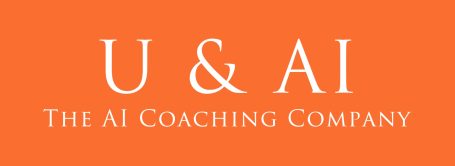Concept #1
Motivational Interviewing
Motivational Interviewing (MI) is a counseling approach developed by William Miller and Stephen Rollnick that aims to evoke and strengthen an individual's intrinsic motivation to change. While it is primarily used in the context of counseling and therapy, the key concepts and elements of MI can also be applied effectively in a transformation process within teams and organizations. As a coach, I follow the guidelines of this method to find the motivation for change in individuals and teams.
Many AI hype messages praise the effectiveness of marketing, content creation and customer services. I think many companies have to and want to dig deeper to motivate their team members.
As a team coach, I create an inclusive space for team members to share their thoughts, concerns, and aspirations regarding the AI adoption process. I encourage open dialogue, listening actively, and seek input from all individuals involved. By involving the team in decision-making and problem-solving, I enhance their engagement and commitment to the transformation.
Evoking Change Talk: MI recognizes that people are more likely to change when they articulate their own reasons for change. The coach's role is to elicit and amplify "change talk," which refers to statements made by team members that express their desire, ability, reasons, and need for change. These statements provide momentum for transformation.
You can encourage team members to reflect on their personal and professional goals and identify the potential benefits of the transformation.
I ask open-ended questions that elicit change talk, such as "What positive outcomes do you foresee if we implement these changes?"
or "How would this transformation align with your values and aspirations?"
Good leaders acknowledge and reinforce change talk to strengthen motivation and commitment.
Rolling with resistance: Rather than confronting or opposing resistance, Motivational Interviewing encourages coaches to "roll with" it.
Resistance is viewed as a signal that the individual's autonomy or concerns are not adequately addressed.
By empathizing and exploring the underlying reasons for resistance, the coach can create a safe space for the team members to openly
express their doubts and concerns.
When encountering resistance within the team, I can adopt a non-confrontational approach much more easily as a team leader or manager. I create opportunities for team members to voice their reservations and fears openly. By addressing their concerns and exploring possible solutions together, I can help alleviate resistance and foster a more receptive attitude toward the transformation.
Supporting Self-Efficacy: Self-efficacy refers to an individual's belief in their ability to successfully accomplish a specific task or change. MI emphasizes the importance of building and enhancing self-efficacy by recognizing and reinforcing the team members' strengths, past successes, and available resources. Many task will be done more efficiently by AI software so that our self-efficacy is challenged. It is not easy for everybody to stay positive and adapt to change.
I break down complex goals into smaller, achievable steps to build confidence while people train AI software. By encouraging peer support and creating opportunities for skill-building, leaders can enhance self-efficacy of their team members.
This approach empowers individuals, encourages their active participation, and helps them embrace change. My role is to facilitate the process, listen empathetically, and guide team members toward finding their own motivations for change. I provide positive feedback and recognition for team members efforts to define their new role as creative directors of their own AI future.
